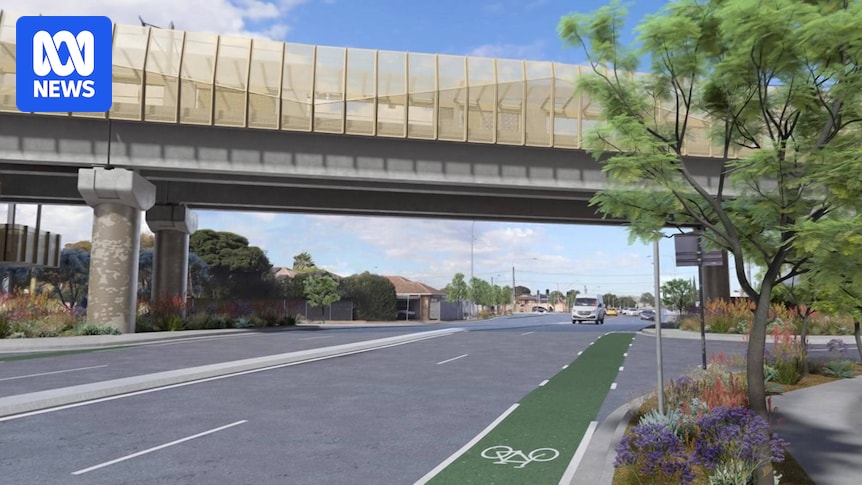
Adelaide’s Glenelg tramline has been temporarily closed to facilitate significant upgrade works, including the construction of three new overpasses. This ambitious project aims to enhance the city’s transport infrastructure, with two overpasses eliminating the need for level crossings and a third replacing an existing structure. The $870 million project, jointly funded by the state and federal governments, is expected to last up to six months, according to the transport minister. While some commuters and local businesses anticipate long-term benefits, others are concerned about the immediate disruptions.
The announcement comes as part of a broader effort to modernize Adelaide’s transport network. The new overpasses are being constructed at strategic locations in Plympton, Morphettville, and Glandore. These changes are designed to improve traffic flow and reduce commuting times, particularly during peak hours. However, as the works proceed, commuters and businesses are bracing for a challenging period.
Strategic Overpass Locations
The new overpasses are set to transform key intersections. The first overpass will carry trams over Marion and Cross Roads, while the second will span Morphett Road, effectively removing level crossings at these busy locations. The third overpass will replace an existing structure above South Road, which, despite being only 15 years old, requires replacement due to structural damage.
Transport Minister Tom Koutsantonis emphasized the necessity of these upgrades, highlighting the inefficiencies of Adelaide’s current grid network.
“Our grid network is failing,” Koutsantonis stated. “We need to operate on a non-stop corridor network.”
The new overpasses are expected to alleviate congestion, particularly for the approximately 50,000 vehicles delayed daily by boom gates at Marion and Cross Roads.
Impact on Drivers and Commuters
During the construction period, drivers will face speed restrictions and road closures. The Department for Infrastructure and Transport has indicated that detours will be implemented as necessary. Despite the inconvenience, the government assures that the completed works will significantly improve traffic flow.
For tram users, the line closure between Adelaide’s CBD and Glenelg will last until late January. Substitute bus services will operate along Anzac Highway and between Moseley Square at Glenelg and Victoria Square in the city. The transport minister has promised that the substitute timetable will closely mirror the tram schedule, although he acknowledged that buses cannot match the efficiency of trams.
“You’re never going to beat a tram,” Koutsantonis admitted. “The reason fixed rail is so popular with people is that they don’t have to be waiting at intersections.”
Business Concerns and Economic Impact
Local businesses, particularly along Jetty Road in Glenelg, are apprehensive about the potential economic impact of the tramline closure. The overlap with ongoing works along the shopping strip has heightened concerns.
“It brings customers, the tram, and closing a road down … just doesn’t seem to make, really, sense,” said local shop worker Arshia Ghayem.
Opposition MP Stephen Patterson echoed these concerns, emphasizing the tram’s role as a vital artery for local economic activity.
However, some traders remain optimistic. Melanie Tomblin, a local business operator, believes that Glenelg’s accessibility will mitigate the impact.
“We have a lot of tourists that come down on the tram,” she said. “But Glenelg’s fairly accessible. I feel like there are other ways to get down to Glenelg, it’s just the tram is so iconic.”
Looking Ahead
The Glenelg tramline closure represents a significant phase in Adelaide’s transport evolution. While the short-term disruptions pose challenges, the long-term benefits are expected to be substantial. The project aims to deliver a more efficient, modern transport system that meets the needs of a growing city. As the works progress, the focus will remain on minimizing disruptions and ensuring that both commuters and businesses can adapt to the changes.
In the coming months, Adelaide’s residents will need to navigate these changes with patience and adaptability. The government has pledged to support affected businesses and commuters, promising a smoother, more efficient transport network upon completion.






